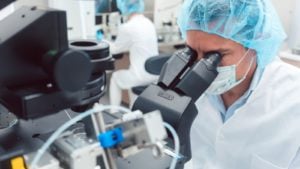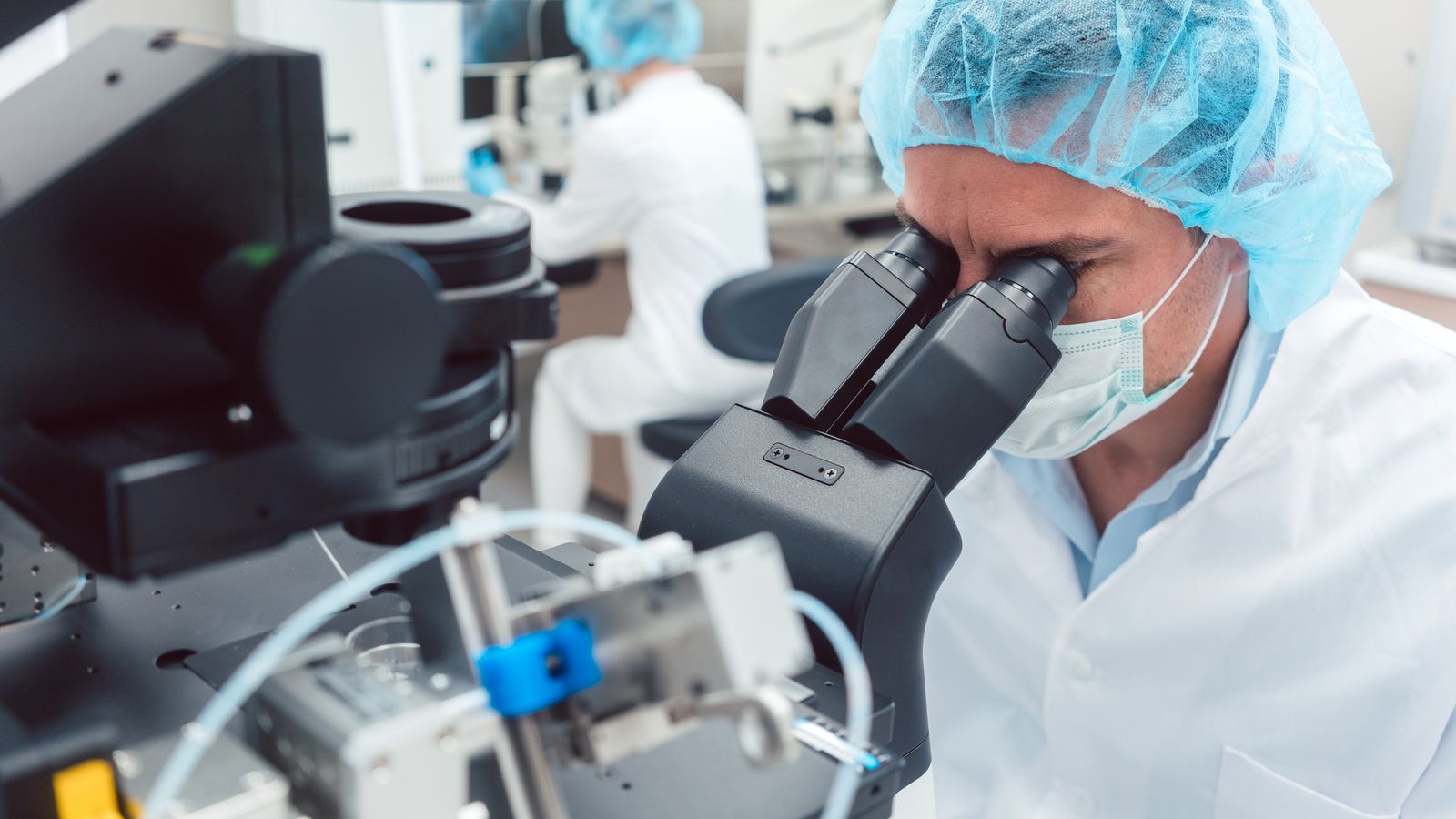What with all the trials under way to produce a vaccine for the novel coronavirus these days, trials of another kind have popped up, enough to make investors ill. Shares in Inovio Pharmaceuticals (NASDAQ:INO) cratered by a third in just 48 hours, beginning on Monday Sept. 28, after news that the FDA halted a planned Phase 2/3 clinical trial of its Covid-19 vaccine candidate INO-4800. Not long before that, AstraZeneca (NYSE:AZN) suspended a trial when a previously healthy 37-year-old woman was hospitalized on Sept. 5 after receiving her second dose of a vaccine in clinical trial. The question is whether maladies such as these might infect entrants such as iBio (NYSEAMERICAN:IBIO) and IBIO stock.

Before you blurt out an answer, let’s take a second to appreciate just how complicated the vaccine milieu is at this point. Behold:
- At least 15 companies are vying to cross the finish line first in the vaccine derby.
- The Covid-19 vaccine ranks as perhaps the most anticipated in history.
- Political pressures to produce results have come into play, especially during this presidential election season.
- “Rarely,” the New York Times reports, “has a vaccine been developed in less than five years.”
- Entrants such as the aforementioned Inovio have lousy track records, but somehow get lumped in with far more legitimate contenders. Nowhere in this week’s FDA-related news did any media outlet highlight that the company hasn’t brought a product to market in its 40 years of existence.
Confused? You should be. Because any investment that tracks a company strictly because it’s in the running to produce a Covid-19 vaccine needs very cautious consideration. Gut feelings won’t cut it; the research is harder than you think since it involves science as well as financials. Company hype is for suckers. Looking at each company case by case will remind us that sound fundamentals transcend this moment in time, as fraught with investor anxiety and anticipation as it is.
With all this understood, let’s look at the case for IBIO stock, both within and outside the context of Covid-19.
How IBIO Stock Stands on Its Own
Let’s put the v-word aside for a moment and check under the hood of this 12-year-old Delaware-based company. IBIO posted its highest share price in more than three years on July 20, reaching $6.41 per share, but has since tumbled by more than two-thirds to $2.04. That puts it in the Valley of the Shadow of the Penny Stock, not exactly reassuring when you consider that iBio doesn’t turn a profit.
What this stock has going for it, ironically, is market volatility surrounding what you might call the Covid-19 Sector. I can see a case that goes something like this: IBIO stock is affordably priced; if the company reports something even the least bit positive it could bounce high like a Super Ball for a short period of time.
Indeed, IBIO doubled over three days in late June and has had some astronomical run-ups over the last nine months; those were largely the result of investor speculation as America’s Covid-19 illness count rose.
I’m glad I’m not the only one befuddled by this. My InvestorPlace colleague Bret Kenwell put it like this in July: “There are no real fundamentals to go with here. This stock is essentially a binary situation with the novel coronavirus. Either it plays a meaningful role in the treatment or it doesn’t.”
And so far, it hasn’t.
The Case for a Pharma Dividend King
Investors have been treating IBIO stock like a call option, trying to lock in an anticipated gain by buying lots of shares at low prices. If that’s your way of making a short-short-term profit, and you can make it work, knock yourself out. But…
Let’s compare this to an investment in, say, Johnson & Johnson (NYSE:JNJ). Should the venerable New Jersey company finish dead last in the vaccine race, your investment would still be rock solid based on just the dividends alone. JNJ is known as a “dividend king,” meaning it has increased its dividends annually for 50 years or more. In fact, JNJ’s actual total is 58, a run that dates to when John F. Kennedy was in the White House and The Beatles hadn’t hit America yet.
Do you see what I’m driving at? Yes, you could hit it big if you bet on the right stock that produces the right vaccine at the right time. But if that’s all you’re wagering on, your scope is about as slim as the width of a Powerball ticket. For my investment dollar, the smart money rides on the company that could produce a Covid-19 treatment but will also fare well if it doesn’t.
Savvy Investors Will Pass on iBio
Yes, I could see departing from this stubborn contention should the headlines trumpet a breakthrough. But you have to be really, really careful. If the media is any guide, Inovio shouldn’t be taken seriously at all given its zero-for-four decades track record. You might have a better chance of whipping up a chocolate-frosted vaccine in your second grader’s EasyBake oven, but no one’s writing about you, are they? (Maybe if you went public and put out some rosy press releases, they would.)
This is going to sound old fashioned, but here goes. Something troubles me about investing in a pharma that’s purportedly in the hunt to halt one of the deadliest viruses in history, but only buying shares to make a buck … this with the mentality of, “I know they don’t have a shot at doing this…who cares?”
Well, I do.
Call me a socially responsible investor, call me a capitalistic stooge. Just don’t call me to play call option with a stock that has “fun and games with Covid-19” written all over it. I would love to be proven wrong on this and see iBio produce a breakthrough. I am sure many researchers and technicians under its auspices are hard at work to this effect.
But as to any tangible results, financial or otherwise, that inspire my confidence? I’m going to make like scientist here and ask, “where’s the evidence?”
On the date of publication, Lou Carlozo did not have (either directly or indirectly) any positions in the securities mentioned in this article.
